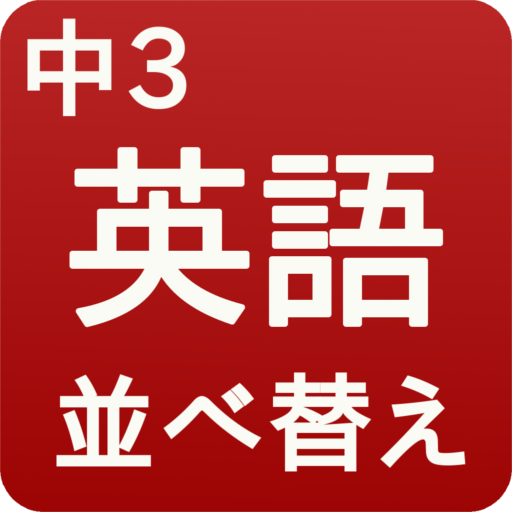単語クリックするとその単語の意味や品詞名、例文などが表示されます。
across
意味~を横断して、~を横切って 品詞前置詞
例文Ben ran across the bridge and came to talk to Mary.
ベンは橋を走って横断して、メアリーに話に来ました
again 例文Ben ran across the bridge and came to talk to Mary.
ベンは橋を走って横断して、メアリーに話に来ました
意味再び、また 品詞副詞
例文Please take it back, and be my friend again.
どうかそれを持ちかえって、またわたしの友達になってください
along 例文Please take it back, and be my friend again.
どうかそれを持ちかえって、またわたしの友達になってください
意味~にそって 品詞前置詞
例文Can you make a big fence along the stream?
小川にそって大きな垣根を作ってくれますか
angry 例文Can you make a big fence along the stream?
小川にそって大きな垣根を作ってくれますか
意味怒った 品詞形容詞
例文Oh, you sound so angry.
おや、あなたはとても怒っているように聞こえます
as 例文Oh, you sound so angry.
おや、あなたはとても怒っているように聞こえます
意味~のような 品詞代名詞
例文It has the same short legs as my other cows.
それはわたしのほかのウシと同じような短い脚をしている
bad 例文It has the same short legs as my other cows.
それはわたしのほかのウシと同じような短い脚をしている
意味悪い、ひどい 品詞形容詞
例文Ben, my bad neighbor, made it last week.
わたしの悪い隣人のベンが先週それを作ったのです
between 例文Ben, my bad neighbor, made it last week.
わたしの悪い隣人のベンが先週それを作ったのです
意味~の間に、~の間で、~の間の 品詞前置詞
例文You built a "bridge" between us.
あなたはわたしたちの間に「橋」をつくってくれました。
both 例文You built a "bridge" between us.
あなたはわたしたちの間に「橋」をつくってくれました。
意味両方、2人とも、2つとも 品詞代名詞
例文You both look very happy.
あなたたちは2人ともとても幸せそうに見えます
bridge 例文You both look very happy.
あなたたちは2人ともとても幸せそうに見えます
意味橋 品詞名詞
例文I built a bridge over the stream.
わたしは小川の上に橋を建てました
build 例文I built a bridge over the stream.
わたしは小川の上に橋を建てました
意味建てる 品詞動詞
例文Did he build it?
彼がそれを建てたのですか。
built 例文Did he build it?
彼がそれを建てたのですか。
意味buildの過去形 品詞動詞
例文I built a bridge over the stream.
わたしは小川の上に橋を建てました
carpenter 例文I built a bridge over the stream.
わたしは小川の上に橋を建てました
意味大工 品詞名詞
例文I want to be a carpenter.
私は大工になりたい。
country 例文I want to be a carpenter.
私は大工になりたい。
意味いなか 品詞名詞
例文Mary lived in the country.
メアリーはいなかに住んでいました
cow 例文Mary lived in the country.
メアリーはいなかに住んでいました
意味ウシ 品詞名詞
例文One day, they found a cow.
ある日、彼らは1頭のウシを見つけました
either 例文One day, they found a cow.
ある日、彼らは1頭のウシを見つけました
意味~もまた 品詞副詞
例文I don't want to lose yours, either.
わたしもあなたのものを失いたくない
face 例文I don't want to lose yours, either.
わたしもあなたのものを失いたくない
意味顔 品詞名詞
例文I don't want to see his face.
わたしは彼の顔を見たくないの
fence 例文I don't want to see his face.
わたしは彼の顔を見たくないの
意味垣根 品詞名詞
例文Can you make a big fence along the stream?
小川にそって大きな垣根を作ってくれますか
fight 例文Can you make a big fence along the stream?
小川にそって大きな垣根を作ってくれますか
意味口げんか 品詞名詞
例文After this little fight, Ben took the cow.
このささいな口げんかのあと、ベンはウシを連れていきました
finish 例文After this little fight, Ben took the cow.
このささいな口げんかのあと、ベンはウシを連れていきました
意味終える 品詞動詞
例文He finished his work.
彼は仕事を終えました
friendship 例文He finished his work.
彼は仕事を終えました
意味友情 品詞名詞
例文I don't want to lose your friendship.
わたしはあなたの友情を失いたくない
gift 例文I don't want to lose your friendship.
わたしはあなたの友情を失いたくない
意味贈り物 品詞名詞
例文He gave me a gift.
彼は私に贈り物をくれた。
hey 例文He gave me a gift.
彼は私に贈り物をくれた。
意味ねえ、おや、おい 品詞間投詞
例文Hey, that's my cow.
おや、あれはわたしのウシだ
knock 例文Hey, that's my cow.
おや、あれはわたしのウシだ
意味ノックする、たたく 品詞動詞
例文Someone knocked at Mary's door.
だれかがメアリーのドアをノックしました
left 例文Someone knocked at Mary's door.
だれかがメアリーのドアをノックしました
意味leaveの過去形 品詞動詞
例文He left with a smile.
彼はにっこり笑って去りました
little 例文He left with a smile.
彼はにっこり笑って去りました
意味ささいな 品詞形容詞
例文After this little fight, Ben took the cow.
このささいな口げんかのあと、ベンはウシを連れていきました
long 例文After this little fight, Ben took the cow.
このささいな口げんかのあと、ベンはウシを連れていきました
意味長い 品詞形容詞
例文The cow has a long tail.
そのウシは長いしっぽをしている
lose 例文The cow has a long tail.
そのウシは長いしっぽをしている
意味失う 品詞動詞
例文I don't want to lose your friendship.
わたしはあなたの友情を失いたくない
neighbor 例文I don't want to lose your friendship.
わたしはあなたの友情を失いたくない
意味近所の人、隣人 品詞名詞
例文Ben, her neighbor, was a good friend.
彼女の隣人ベンは、親友でした
one 例文Ben, her neighbor, was a good friend.
彼女の隣人ベンは、親友でした
意味ある~ 品詞形容詞
例文One day, they found a cow.
ある日、彼らは1頭のウシを見つけました
open 例文One day, they found a cow.
ある日、彼らは1頭のウシを見つけました
意味あく、開く 品詞動詞
例文Then the door of Ben's house opened, and Ben came out of his house.
そのときベンの家のドアがあき、ベンが家から出てきました
over 例文Then the door of Ben's house opened, and Ben came out of his house.
そのときベンの家のドアがあき、ベンが家から出てきました
意味向こう側に、こちら側に 品詞副詞
例文Look at that small stream over there.
あそこのあの小さな小川を見てください
pass 例文Look at that small stream over there.
あそこのあの小さな小川を見てください
意味経過する 品詞動詞
例文A week passed.
1週間が過ぎました
short 例文A week passed.
1週間が過ぎました
意味短い 品詞形容詞
例文It has the same short legs as my other cows.
それはわたしのほかのウシと同じような短い脚をしている
small 例文It has the same short legs as my other cows.
それはわたしのほかのウシと同じような短い脚をしている
意味小さい 品詞形容詞
例文Look at that small stream over there.
あそこのあの小さな小川を見てください
so 例文Look at that small stream over there.
あそこのあの小さな小川を見てください
意味そう、そのように 品詞副詞
例文Why do you think so?
なぜそう思うんだ
someone 例文Why do you think so?
なぜそう思うんだ
意味だれか 品詞代名詞
例文Someone knocked at Mary's door.
だれかがメアリーのドアをノックしました
sound 例文Someone knocked at Mary's door.
だれかがメアリーのドアをノックしました
意味聞こえる、思われる 品詞動詞
例文Oh, you sound so angry.
おや、あなたはとても怒っているように聞こえます
stream 例文Oh, you sound so angry.
おや、あなたはとても怒っているように聞こえます
意味小川、川 品詞名詞
例文Look at that small stream over there.
あそこのあの小さな小川を見てください
sunset 例文Look at that small stream over there.
あそこのあの小さな小川を見てください
意味日の入り 品詞名詞
例文We arrived at sunset.
私達は日の入りに着いた。
tail 例文We arrived at sunset.
私達は日の入りに着いた。
意味尾、しっぽ 品詞名詞
例文The cow has a long tail.
そのウシは長いしっぽをしている。
think 例文The cow has a long tail.
そのウシは長いしっぽをしている。
意味考える、思う 品詞動詞
例文Why do you think so?
なぜそう思うんだ
traveling 例文Why do you think so?
なぜそう思うんだ
意味巡業する、旅する 品詞形容詞
例文I'm a traveling carpenter.
わたしは旅する大工です
why 例文I'm a traveling carpenter.
わたしは旅する大工です
意味なぜ、どうして 品詞副詞
例文Why do you think so?
なぜそう思うんだ
work 例文Why do you think so?
なぜそう思うんだ
意味うまくいく、機能する、作動する、動く 品詞動詞
例文It doesn't work.
それは作動しない。
work 例文It doesn't work.
それは作動しない。
意味仕事 品詞名詞
例文I'm looking for work.
わたしは仕事をさがしています
例文I'm looking for work.
わたしは仕事をさがしています
